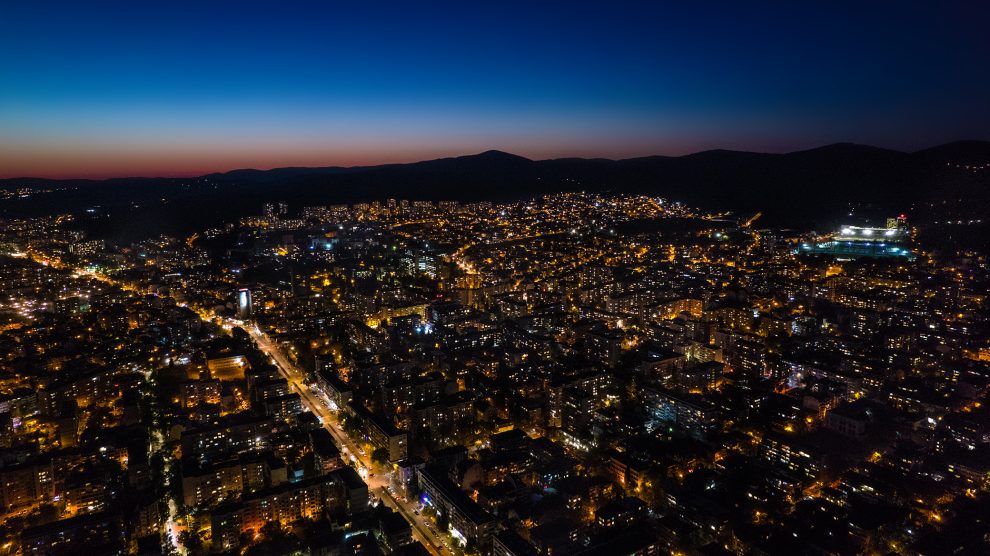In 2020, amidst the Covid-19 pandemic, the Municipality of Stara Zagora established a new Department for Investment Promotion with a clear goal—to seize the opportunities presented by the rapid development of the city and offer attractive prospects for investment, despite the uncertainties.
Despite the challenges, the department started from scratch and quickly achieved remarkable results, significantly improving administrative and investment support, infrastructure, and city development programmes. It also introduced numerous social and educational incentives aimed at nurturing Stara Zagora’s emerging workforce.
“Working during the pandemic was extremely challenging, especially when companies were focused on managing losses and hesitant to expand. However, through considerable effort, we managed to gain the trust of businesses and attract significant investment interest to the region,” says Rositsa Raykova, Stara Zagora’s head of investment, energy efficiency, and green transition.
“The most rewarding aspect of our work is seeing our efforts recognised, maintaining that trust, and building a strong reputation in such difficult times. We have succeeded in establishing Invest Stara Zagora as a brand, and I believe we have contributed to making our city and the district as a whole an even more desirable place for investment. We are committed to sustaining this momentum because, for us, this is more than a job—it is our ambition and passion to develop Stara Zagora into one of the best places to live and work in Europe.”
Between 2016 and March 2024, a total of 44 large-scale investments were made in the district, with a significant increase in recent years. From 2021 to March 2024 alone, 34 investments were secured, marking a 340 per cent growth compared to the previous period of 2016–2020, during which only 10 investments were made.
The average investment size during this period amounted to 5.4 million euros, underscoring the strategic importance of Stara Zagora District for Bulgaria’s business climate. Recent investors include companies from the automotive, renewable energy, and innovative technology sectors.
In the past year alone, two major companies from the European automotive sector announced investments totalling 30 million euros.
A specific challenge for the district is the ongoing energy transition and the gradual closure of coal mines, which is creating new industrial opportunities. The transformation of Stara Zagora District from a coal-dependent region has already begun, and in the foreseeable future, there will be a highly qualified workforce available, as well as significant public resources through the Just Transition Fund, available to both small and large enterprises. The district boasts a well-qualified workforce with extensive experience in energy and engineering. As part of the energy transition, approximately 11,000 workers with engineering and energy backgrounds are expected to leave the coal mining and energy sectors, seeking new opportunities. The department has promoted access to qualified labor and financial resources available through the Just Transition Fund.
Currently, the Municipality of Stara Zagora, in collaboration with other municipalities from the district and key stakeholders, is working on the project, Development of a Strategy for Entrepreneurship, Innovation, and Digitalization in the Stara Zagora District and a Roadmap for its Implementation.
The project is funded by the European Union via the Technical Support Instrument, managed by the European Commission Directorate General for Structural Reform Support. Its objective is to create a mid-term strategy and implementation tactics to attract both foreign and local investors, identifying the sectors with the greatest growth potential.
Embracing modern technology and innovation
“This strategy lays the foundation for the future of our city, transforming the local economy to ensure sustainability beyond the green transition. We aim to retain the district’s youth, as they represent our true potential and are key to our post-coal era development. Embracing modern technologies and innovations will significantly boost local economic growth. While we may currently be seen as cautious innovators, we are confident that the time will come when others will look to us as a model and seek collaboration,” Raykova says.
The municipality works closely with Trakia University, the only institution in the region with an actively implemented strategy for developing multiple industrial profiles by 2050, and with local vocational schools to ensure that investors have access to a skilled workforce. Retraining and continuing education programs are being developed to meet the needs of various sectors, ensuring that the workforce is ready to meet business demands from day one.
“The largest investments so far have been in the automotive, mechanical engineering, renewable energy, and logistics sectors. In the future, we will continue to develop these sectors while also focusing on attracting investments in innovation, IT technologies, and the green transition in response to the Green Deal. We are committed to creating industrial zones that meet the specific requirements of these emerging sectors while also ensuring adequate jobs for workers and fostering a vibrant city in which to live,” concludes Raykova.
This content was produced in collaboration with the municipality of Stara Zagora and the European Commission’s Directorate General for Structural Reform Support.

